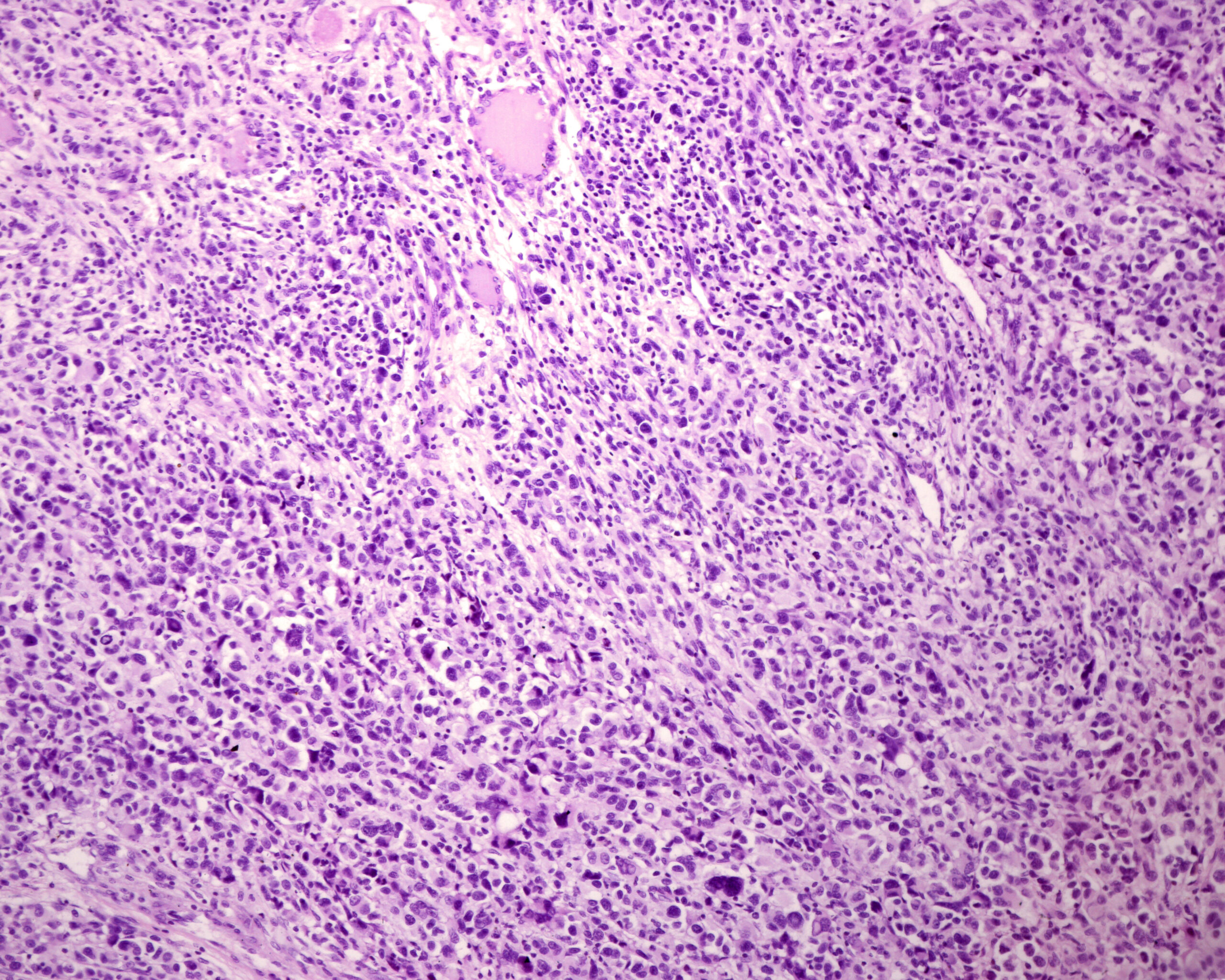Sarcoma Treatment & Surgery

What Causes Sarcoma?
Risk Factors For Sarcoma Cancer
Sarcoma Cancer Treatment Options
At Millennium Physicians, we provide a comprehensive range of advanced treatment options for sarcoma, carefully tailored to each patient's unique diagnosis, tumor type, and overall health. Below are some of the most common and effective sarcoma treatment approaches:
Surgery
- Tumor Resection:
Surgical removal of the tumor is often the first line of treatment, especially for localized sarcomas. The goal is to remove the entire tumor with clear margins to reduce the risk of recurrence. - Limb-Sparing Surgery:
When sarcoma affects the arms or legs, surgeons aim to remove the tumor while preserving as much normal function and tissue as possible. - Amputation:
In rare cases where the tumor cannot be fully removed or threatens limb function, amputation may be necessary.
Radiation Therapy
Uses high-energy rays to target and destroy cancer cells.
Often used before surgery to shrink tumors or after surgery to eliminate residual cancer cells and reduce recurrence risk.
Chemotherapy
Employs powerful drugs to kill or slow the growth of sarcoma cells.
Often used for high-grade or metastatic sarcomas, and may be combined with other treatments depending on the sarcoma subtype.
Targeted Therapy
Attacks specific genes, proteins, or the tissue environment that contributes to cancer growth.
Used in select sarcoma types such as gastrointestinal stromal tumors (GIST), where targeted drugs like tyrosine kinase inhibitors (e.g., imatinib) can be effective.
Immunotherapy
Stimulates the body’s immune system to recognize and destroy cancer cells.
Still under investigation for sarcoma but may be used in clinical trials or specific subtypes.
Personalized Treatment Plans
Our multidisciplinary team works together to create an individualized treatment plan tailored to your sarcoma type, stage, and personal goals. At Millennium Physicians, we are committed to compassionate, evidence-based care that supports you every step of the way.
Understanding and Managing Risk
Recognizing the risk factors associated with sarcoma is an important step in promoting early detection and prevention. While many sarcomas occur without a clear cause, certain inherited genetic conditions—such as Li-Fraumeni syndrome, familial retinoblastoma, and neurofibromatosis—can significantly increase your risk. Previous radiation therapy, long-term lymphedema, and exposure to specific chemicals are also linked to a higher chance of developing sarcoma.
At Millennium Physicians, we believe that proactive care begins with knowledge. By understanding your personal and family medical history, we can work with you to identify risks and build a personalized plan for prevention and early detection. Regular health evaluations and open dialogue with your provider can make all the difference. Our goal is to empower you with the tools and guidance you need to stay informed and take control of your long-term health.
What is the Survival Rate of Sarcoma Cancer?
The survival rate for sarcoma varies based on several key factors, including the type of sarcoma, its location, stage at diagnosis, and the patient’s overall health. When detected early and treated promptly, the five-year survival rate for localized soft tissue sarcoma is around 81%. However, survival rates decrease if the cancer has spread to lymph nodes or distant organs, with the overall five-year survival rate for all soft tissue sarcomas averaging around 65%.
Overall Survival Rates:
Osteosarcoma, one of the most common bone cancers, has a five-year survival rate of around 77% when diagnosed early and confined to the bone. If the cancer has spread to nearby tissues or lymph nodes, the survival rate drops to about 64%. In cases where it has spread to distant parts of the body, such as the lungs, the five-year survival rate decreases significantly to approximately 27%.
Frequently Asked Questions About Sarcoma
Diagnosis typically involves imaging tests (like MRI or CT scans), a biopsy to confirm the type of tumor, and additional testing to determine whether the cancer has spread.
16 Convenient Houston Locations
Conroe
4015 I-45 North Ste. 310
Conroe, TX 77304
Phone: (346) 345-2403
Fax: (281) 763-2736
Hours: Monday – Friday 8:30 AM – 5:00 PM
Kingwood – Texas Regional Urology
22710 Professional Dr. Ste. 203
Kingwood, TX 77339
Phone: (281) 444-7077
Fax: (281) 444-5799
Hours: Monday – Friday 8:00 AM – 5:00 PM
Tomball – Texas Regional Urology
Tomball, TX 77375
Phone: (281) 290-9800
Fax: (281) 290-9824
Hours: Monday – Thursday 8:00 AM – 5:00 PM,
Friday 8:00 AM – 1:00 PM
Willis
9851 FM 1097 Rd. West Ste. 120
Willis, TX 77318
Phone: (346) 345-2403
Fax: (281) 763-2736
Hours: Monday – Friday 8:30 AM – 5:00 PM
The Woodlands – Texas Regional Urology
9303 Pinecroft Dr. Ste. 320
The Woodlands, TX 77380
Phone: (832) 442-2392
Fax: (281) 290-9824
Hours: Monday – Thursday 8:00 AM – 5:00 PM,
Friday 8:00 AM – 1:00 PM
The Woodlands – North Houston Urology
9319 Pinecroft Dr. Ste. 210
The Woodlands, TX 77380
Phone: (281) 444-7077
Fax: (281) 444-5799
Hours: Monday – Friday 8:00 AM – 5:00 PM
The Woodlands
9319 Pinecroft Dr. Ste. 210
The Woodlands, TX 77380
Phone: (346) 345-2403
Fax: (281) 763-2736
Hours: Monday – Friday 8:00 AM – 4:00 PM
Houston – North Houston Urology
17070 Red Oak Dr. Ste 200Houston, TX 77090
Phone: (281) 444-7077
Fax: (281) 444-5799
Hours: Monday – Friday 8:00 AM – 5:00 PM
Cleveland
314 South San Jacinto Ave. Cleveland, TX 77327
Phone: (281) 444-7077
Fax: (281) 719-5931
Hours: Monday – Friday 8:00 AM – 5:00 PM
Conroe
506 Medical Center Blvd. Ste. 100 Conroe, TX 77304
Phone: (281) 569-2130
Fax: (281) 569-2131
Hours: Monday – Friday 8:00 AM – 5:00 PM
Cypress
27700 Northwest Fwy. Ste. 580 Cypress, TX 77433
Phone: (832) 791-5530
Fax: (832) 719-5531
Hours: Monday – Friday 8:00 AM – 5:00 PM
Houston
522 Timberdale Ln. Houston, TX 77090
Phone: (281) 440-5006
Fax: 281) 719-5935
Hours: Monday – Friday 8:00 AM – 5:00 PM
Huntsville
130 Medical Center Pkwy. Ste. 5 Huntsville, TX 77340
Phone: (936) 439-0500
Fax: 281) 719-5935
Hours: Monday – Friday 8:00 AM – 5:00 PM
